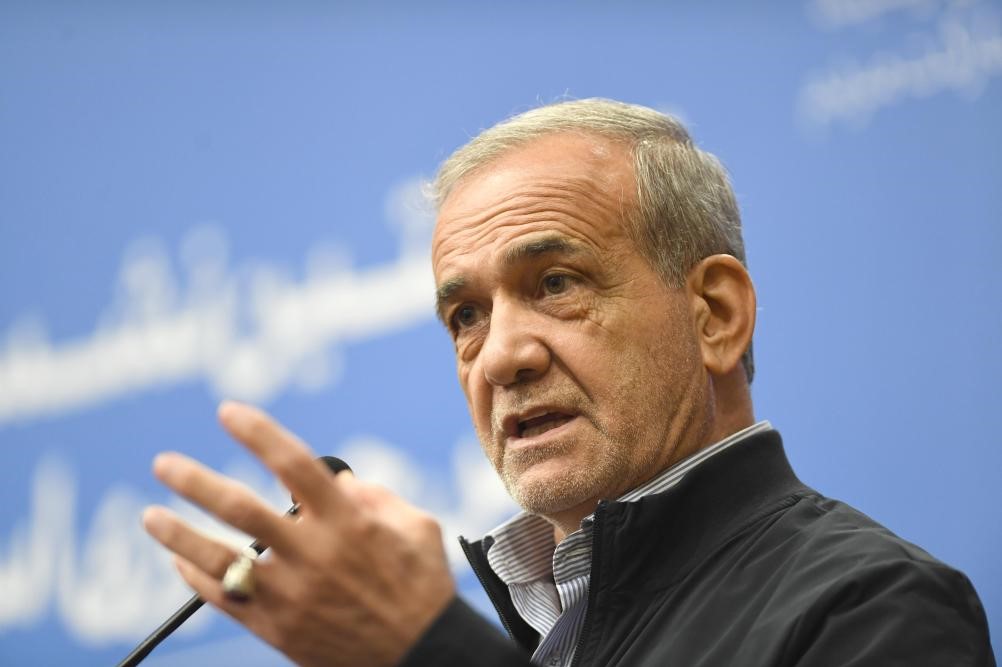
 0 Comment(s)
0 Comment(s) Print
Print E-mail Xinhua, March 31, 2025
E-mail Xinhua, March 31, 2025

Iranian President Masoud Pezeshkian attends a press conference in Tehran, Iran, on Sept. 16, 2024. [Photo/Xinhua]
Iranian President Masoud Pezeshkian confirmed on Sunday that Tehran has rejected direct talks with Washington in response to a letter from President Donald Trump. However, he emphasized that Iran has not closed the door on indirect negotiations, a pathway it has consistently kept open.
Pezeshkian made the remarks during a cabinet meeting in Tehran, shedding light on Iran's official response to Trump's letter, which sought direct negotiations on Tehran's nuclear program.
The letter, sent earlier this month, was conveyed through the United Arab Emirates, with Iran's response delivered to Washington via Oman.
According to Pezeshkian, while Tehran declined the prospect of direct talks, it reiterated its openness to indirect negotiations, a stance it has maintained throughout the years.
"We have never closed the door on indirect talks," he stated, adding that the failure to reach progress in past negotiations stemmed from unfulfilled promises by the U.S., which, he suggested, must be addressed to rebuild trust.
"The U.S. behavior will determine the continuation of the negotiation path," he said, signaling that Iran's approach remains contingent on Washington's conduct.
In early March, Trump said that he had sent a letter to Iran's leadership, proposing negotiations over Tehran's nuclear program.
Iran's Foreign Minister Seyed Abbas Araghchi confirmed on Thursday that Tehran had sent its official response through Oman the previous day, reiterating its refusal to direct negotiations, especially under the ongoing "maximum pressure" campaign and military threats from the U.S. However, he affirmed that indirect talks could continue, as they have in the past.
The nuclear deal, formally known as the Joint Comprehensive Plan of Action (JCPOA), was signed in 2015 between Iran and world powers. Under the agreement, Iran agreed to curb its nuclear program in exchange for sanctions relief. However, in May 2018, during Trump's first term, the U.S. withdrew from the deal and reimposed sanctions, prompting Iran to reduce its nuclear commitments.
Efforts to revive the nuclear deal have so far made little progress, with diplomatic initiatives stalled and tensions between Tehran and Washington remaining high.